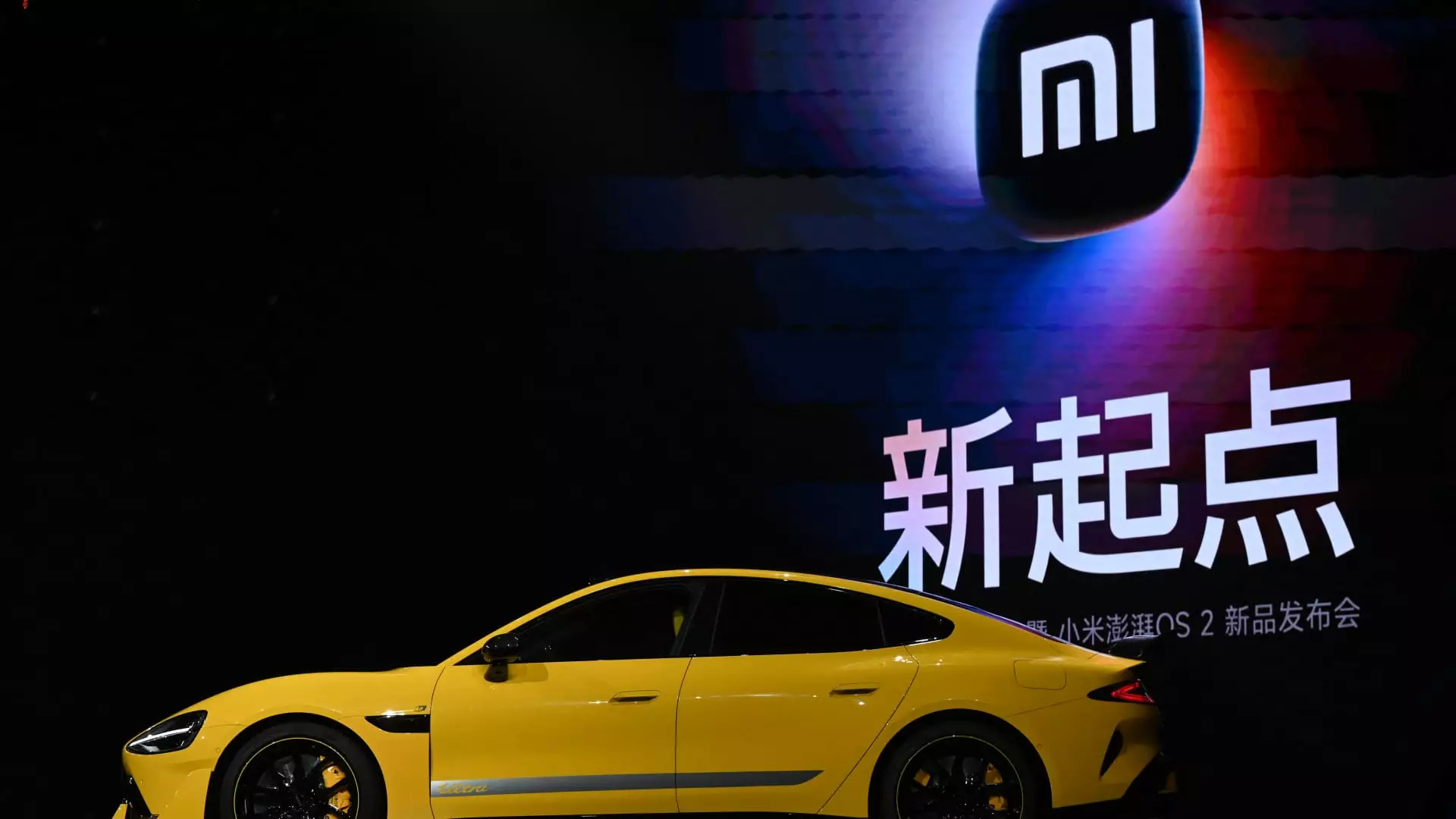In a significant push within the electric vehicle (EV) arena, Xiaomi has announced impressive delivery figures for its SU7 model. In October alone, the company reported over 20,000 units shipped, as it accelerates production to meet rising demand in a highly competitive landscape. The ambitious tech giant, primarily recognized for its smartphones and home electronics, has set a bold target to deliver 100,000 SU7 vehicles by November’s end, showcasing its commitment to establishing a substantial foothold in the automotive sector.
The company first made waves in the automotive world in 2021 when it unveiled its plans to manufacture electric vehicles. Soon after, it began constructing a specialized production facility to facilitate this venture. The SU7, launched in late March, is positioned competitively, retailing for approximately $4,000 less than Tesla’s Model 3—historically the most affordable model from the American giant in China. Following the competitive pressure from Xiaomi, Tesla responded by lowering its own prices by around $2,000.
Xiaomi’s rapid delivery pace is noteworthy, particularly when compared to established rivals in the Chinese EV market. Xpeng and Nio, both significant players, took roughly six years to reach the milestone of 100,000 electric vehicle deliveries. Tesla itself needed 12 years to achieve this feat. In September, Xpeng scored a notable monthly record by delivering over 20,000 vehicles, largely aided by its recently introduced budget-friendly subsidiary brand, Mona. Conversely, Nio has encountered challenges maintaining consistent monthly figures, often struggling to exceed the 20,000 mark.
Zeekr, a relatively new entrant from Geely, claimed to have produced over 100,000 vehicles in just 18 months, delivering an impressive 21,333 cars in September. These figures illustrate the fierce competition within the EV market, emphasizing how Xiaomi’s swift production methods have allowed it to carve out a notable share in a crowded field.
Brian Tycangco, an analyst with Stansberry Research, commented on Xiaomi’s achievements, suggesting that the 20,000 vehicle milestone positions the company as a formidable competitor in the global EV market. Tycangco also highlighted that Xiaomi’s gross profit margins on electric vehicles are now comparable to those of Xpeng, indicating that as production ramps up, profitability may further enhance.
In line with its product strategy, Xiaomi also recently unveiled the SU7 Ultra model, which is marketed at a premium price of approximately $114,304. Notably, within the first 10 minutes of preorders opening, the company secured over 3,600 orders, each accompanied by a deposit of 10,000 yuan. This rapid consumer interest reflects growing confidence in Xiaomi’s product offerings and is supported by the performance metrics shared around their model’s achievements on the prestigious Nurburgring racetrack in Germany.
With forecasts suggesting that Xiaomi could deliver 250,000 vehicles next year—an upward revision from previous estimates—the company is poised for significant growth. Analysts at Citi have also raised their price targets for Xiaomi stock, reflecting optimism as the company ventures deeper into the EV space.
Despite this burgeoning success, it’s important to note that Xiaomi currently limits its car sales to the Chinese market, a strategy that may necessitate careful expansion planning over the next few years. Insights from the company indicate that broader international launches may not materialize for at least two to three more years.
As electric vehicle sales continue to soar globally, Xiaomi’s innovative approaches and aggressive production methods position it favorably against established competitors. The company’s ability to maintain quality while scaling operations will be crucial as it seeks to solidify its place within a rapidly evolving automotive landscape, ensuring it remains relevant in the bustling market ahead.


Leave a Reply